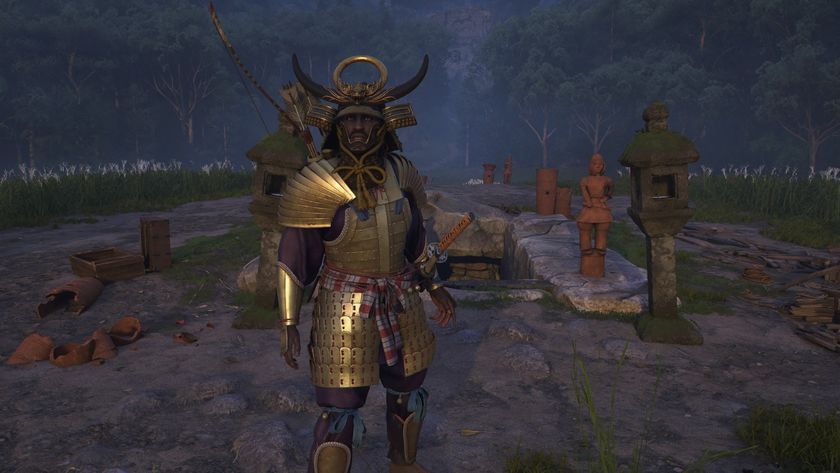Golden Sun: an introduction
We delve deep into the series to see why the upcoming sequel is worth your time
Djinn, the Medieval Pokemon
Where do those graphically badass summons come from? That would be the collectable little monsters, the Djinn. Though their name implies they’re like the mythical Genies, they’re more like a mix between Pokemon and the Espers from Final Fantasy VI.
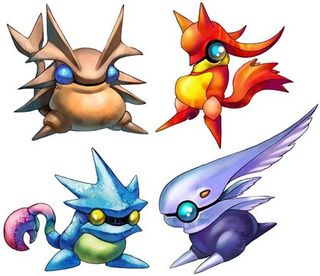
Above: The four types of Djinn - (clockwise from top left) Venus, Mars, Jupiter and Mercury
It seems pretty obvious that the Djinn owe much to Nintendo's Pokemon, as these monsters are hidden throughout the world. Sometimes they lay tantalizing out of your reach at the end of a dense puzzle, other times they lurk in a patch of forest in the overworld you may never set foot in. After you’ve fought and beaten them, they join up with you, and wanting to catch them all has driven many a player off the path of the main story for hours.
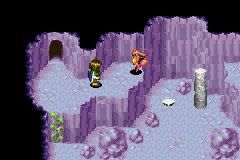
Above: A Djinn in the wild
Their similarity to Espers and other such Final Fantasy power-up systems becomes evident after you catch one. Each can be given to one of the four party members and are either "set" or put on "standby." If they're set, the character gets a mild stat boost, but on standby they can be used as powerful summons in battle, though the boosts are gone. The choice of what to assign to whom, and how to use it, adds even more depth to the combat.
Fun Fact: The four elements are key
Sign up to the 12DOVE Newsletter
Weekly digests, tales from the communities you love, and more
Each Djinn is assigned one of the four elements - Venus, Mars, Jupiter and Mercury - as their alignment, as are all four members of the heroic squad in both GBA games. Though assigning a Djinn to a character of the same alignment gives big benefits, certain mixtures of Djinn yield different results, even opening up whole new classes.
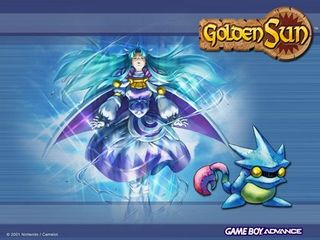
Above: Mia, the Mercury attuned party member from Golden Sun
Magic: not just for battles anymore
As we mentioned, magic spells during fights look pretty awesome, but they're used nearly as much outside of fights. Psynergy, which refers to all magic in GS, is used in dungeon and town exploration, often as a way to get to the next area if you have the right power. Gaining new powers and knowing when to use them is key to completing the tale.
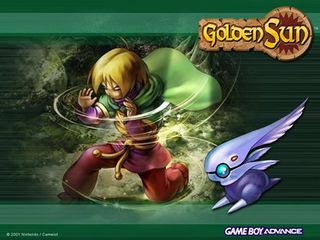
Above: Official art of Ivan using the Whirlwind psynergy
Many of these powers involve moving pillars around so the hero can hop from one spot to the next. Unlike many RPG heroes of old, the protagonists of GS can actually move their feet from the ground, though they can only cover one square of movement per jump. So using the Move psynergy to pull a platform closer, or Freeze to create one out of ice, or even Reveal to see a hidden one, is invaluable to finishing your quest.
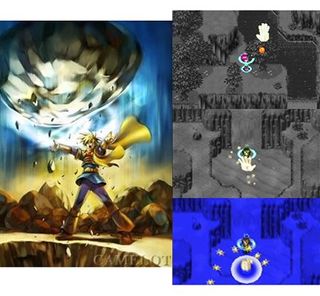
Other spells enable you to grow a set of vines to climb up, pound a pillar blocking your way into the ground or find secret doors or hidden treasure. You can Carry or Catch vital items, Cloak yourself in the shadows, or use Whirlwind to clear a path. All these choices added a huge amount of depth to the game, proving that – while it reminded you of RPGs of old – it had improved on the formula.
Fun Fact: Reading minds is a blast
While not the most useful of psynergies, one of the coolest was Mind Read. Mostly it worked as a vague hint system; when a villager's dialogue wasn't helpful enough, reading their minds could give you a clearer idea of what they meant. Or you could amuse yourself with reading the mind of, say, a sheep to find out how much it loves the grass it's eating. Either way, you've got to appreciate the extra care the game takes to give nearly every non-player character a second set of dialogue that may never be read.
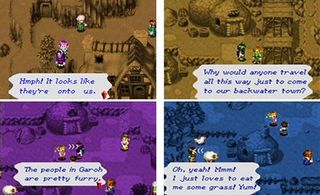
Henry Gilbert is a former 12DOVE Editor, having spent seven years at the site helping to navigate our readers through the PS3 and Xbox 360 generation. Henry is now following another passion of his besides video games, working as the producer and podcast cohost of the popular Talking Simpsons and What a Cartoon podcasts.


